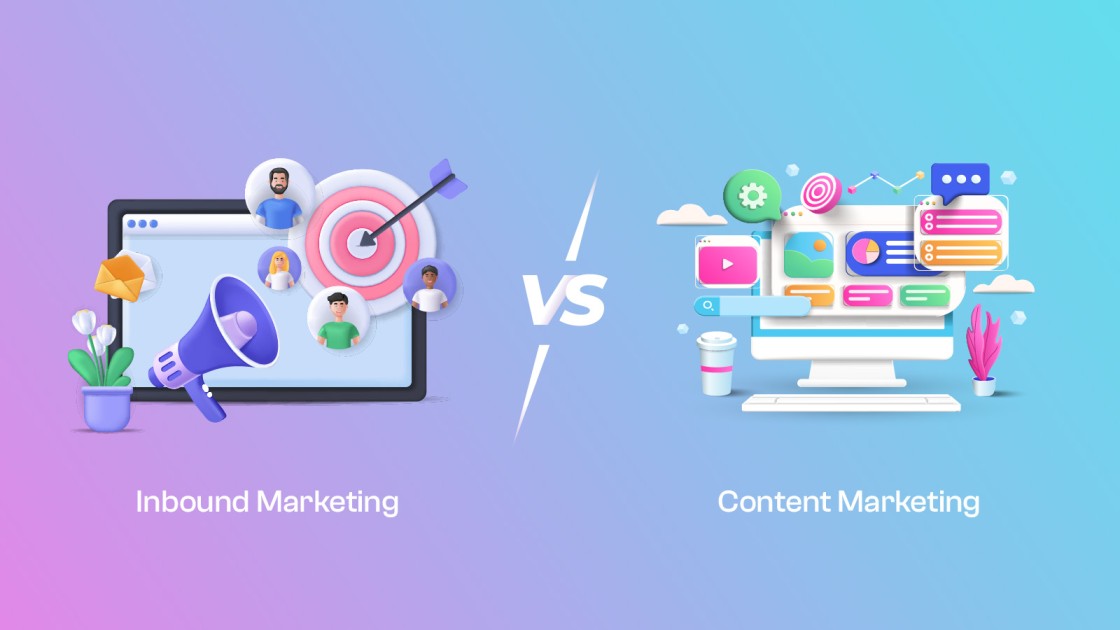
Inbound Marketing Vs Content Marketing: All The Facts You Need To Know
Understanding the nuances between inbound marketing vs content marketing is crucial. While content marketing is a specific tactic that involves creating valuable content, inbound marketing encompasses a comprehensive strategy guiding prospects throughout their customer journey. Inbound marketing includes elements like SEO, social media engagement, lead nurturing, and customer relationship management, while content marketing focuses primarily on content creation and distribution.
The main difference is scope: Inbound marketing is a comprehensive strategy encompassing various tactics, while content marketing is a specific tactic centered on creating and distributing valuable content to engage an audience.
However, these two approaches are not mutually exclusive but complement each other. Content marketing serves as a vital component within the broader inbound marketing framework. Businesses can harness the power of content to attract, engage, and convert prospects effectively, all while maintaining a cohesive and customer-centric strategy.
Difference Between Inbound Marketing & Content Marketing
| Name | Inbound Marketing | Content Marketing |
| Scope and Focus | Comprehensive strategy | Specific tactic within inbound |
| Main Objective | Customer journey guidance | Content creation and distribution |
| Components | SEO, Social Media, Lead Nurturing | Content creation, distribution |
| Sales Alignment | Close alignment with sales | Focus on content’s influence |
| Lead Nurturing | Integral component | Contributes but may be limited |
| Customer Engagement | Across the entire journey | Primarily top and middle funnel |
| Brand Authority | Establishing industry authority | Supporting brand credibility |
| Cost-Effectiveness | Long-term sustainability | Quick wins and brand visibility |
| Analytics and Metrics | Comprehensive tracking | Content-specific metrics |
| Sustainability | Content assets continue to attract | Dependent on ongoing content |
What Is Inbound Marketing?

Inbound marketing is a strategic approach in digital marketing that aims to attract and engage potential customers by creating valuable and relevant content. The primary goal of inbound marketing is to align a business’s promotional efforts with the behaviors and preferences of modern consumers.
By leveraging behavioral economics, inbound marketing focuses on creating content that generates traffic to a company’s website, builds connections, acquires leads, and ultimately keeps customers satisfied. This methodology is particularly beneficial in industries like manufacturing, where customers often have longer sales cycles and make well-considered decisions.
Inbound marketing encompasses various aspects of the marketing mix, including strategy development, content creation, distribution, promotion, search engine optimization, lead nurturing, and alignment between marketing and sales teams.
What Is Content Marketing?

Content marketing is a strategic approach that involves creating and distributing valuable, relevant, and consistent content to attract and engage a specific target audience. The primary objective of content marketing is to provide information, entertainment, or solutions to the audience, ultimately building trust, brand awareness, and customer loyalty.
This marketing strategy goes beyond traditional advertising by delivering content that resonates with the audience’s interests, needs, and preferences. Content can take various forms, including blog posts, articles, videos, infographics, social media posts, podcasts, and more.
Effective content marketing aims to educate, entertain, or inspire the audience, positioning the brand as a trusted authority in its industry. It also encourages the audience to take desired actions, such as purchasing, signing up for a newsletter, or sharing the content with others.
Differences Between Inbound Marketing Vs Content Marketing

Scope And Focus
Conversely, content marketing is a subset of inbound marketing with a more narrow and specialized focus. It primarily centers on creating and distributing valuable, relevant, high-quality content to attract, inform, and engage a target audience.
While content marketing is an essential component of inbound marketing, its scope is limited to creating and disseminating content assets, such as blog posts, articles, videos, infographics, podcasts, and more. The main goal of content marketing is to provide valuable information and solutions to the audience, positioning the brand as a trusted authority in its industry.
Inbound marketing is a comprehensive and multifaceted marketing strategy that takes a holistic approach to engaging and nurturing customers throughout their journey. It encompasses various elements and tactics, including content creation, search engine optimization (SEO), lead nurturing, social media engagement, email marketing, and customer relationship management (CRM).
The scope of inbound marketing is broad and covers the entire customer lifecycle, from attracting strangers and converting them into leads to closing deals and delighting customers after the purchase.
Overall Strategy
Inbound marketing is characterized by its holistic and customer-centric approach. The overarching strategy of inbound marketing revolves around attracting, converting, closing, and delighting customers at every stage of their journey.
It recognizes that the buying process is dynamic and involves nurturing prospects, building trust, and maintaining ongoing customer relationships. Inbound marketing aligns marketing and sales efforts to provide a seamless and personalized experience, ensuring customers are acquired, satisfied, and retained.
While essential within inbound marketing, content marketing represents a specific tactical approach. It focuses on creating and leveraging high-quality content to achieve marketing goals, such as increasing brand awareness, driving website traffic, and engaging the target audience.
Content marketing is vital in the early and middle stages of the customer journey, where informative and engaging content plays a pivotal role in attracting and converting prospects. While content marketing contributes to the broader inbound strategy, it may only encompass part of the spectrum of inbound marketing activities, such as lead nurturing, CRM integration, and sales alignment.
Goals And Objectives
Inbound marketing is a comprehensive strategy with multifaceted goals. Its primary objectives encompass lead generation, customer acquisition, and nurturing long-term customer relationships. The overarching aim is to attract potential customers, convert them into leads, guide them through the sales funnel, close deals, and delight customers after purchase. Inbound marketing seeks to create a seamless and customer-centric experience, fostering brand loyalty and turning customers into promoters.
While integral to inbound marketing, content marketing focuses on more specific objectives. Its primary goal is to create engaging and informative content that resonates with a target audience. This content attracts and captures prospects’ attention, providing valuable insights and solutions to their needs and challenges.
Content marketing aims to establish the brand as a trusted resource and authority within its industry. While it contributes to lead generation and audience engagement, its primary focus remains content creation and distribution.
Components And Channels
Inbound marketing utilizes various components and channels to achieve its goals. These components include search engine optimization (SEO) to enhance online visibility, social media marketing to connect with prospects, email marketing for personalized communication, content creation for engagement, lead nurturing to guide leads through the sales funnel, and customer relationship management (CRM) to facilitate seamless interactions with customers. The channels encompass various digital platforms, offline interactions, and touchpoints, ensuring a holistic approach to customer engagement.
Content marketing, as a subset of inbound marketing, is primarily centered around content creation and distribution. The primary component of content marketing is creating high-quality, relevant, and valuable content assets.
These assets include blog posts, articles, videos, infographics, podcasts, webinars, and more. The distribution of this content primarily occurs through digital channels, including blogs, social media platforms, email newsletters, and other online mediums. While content marketing predominantly revolves around content creation and dissemination, it aligns closely with the broader inbound marketing strategy to attract, engage, and convert prospects.
Customer Journey
Inbound marketing adopts a comprehensive approach that covers the entire customer journey. It recognizes that converting strangers into delighted customers is multifaceted and requires attention at various stages.
Inbound marketing begins by attracting strangers, often by creating valuable content, SEO strategies, and social media engagement. It then converts these strangers into visitors, leads, customers, and advocates. The goal is to provide a seamless and customer-centric experience throughout the journey, fostering brand loyalty and turning customers into long-term promoters.
As a component of inbound marketing, content marketing predominantly focuses on the early and middle stages of the customer journey. It attracts and converts prospects, primarily at the top and middle of the sales funnel.
Content marketing shines at creating informative, engaging, and valuable content that captures the attention of potential customers. Content marketing can attract and convert leads by answering their questions and addressing their pain points. However, its primary emphasis is on the initial stages of engagement and may only encompass part of the customer journey, including post-purchase engagement and delight.
Lead Nurturing
Lead nurturing is a core element of inbound marketing. It involves personalized and automated workflows that effectively guide leads through the sales funnel. Inbound marketing recognizes that not all leads are ready to make an immediate purchase decision, and therefore, it incorporates lead nurturing to provide tailored content, nurture relationships, and address specific needs and objections.
By delivering the right message at the right time, inbound marketing helps move leads from one stage of the funnel to the next, ultimately resulting in more conversions and delighted customers.
While content marketing contributes to lead generation by providing valuable content that attracts and converts prospects, it may include a different level of lead nurturing than inbound marketing. Content marketing primarily focuses on content creation and distribution, aiming to capture the attention and interest of potential customers.
While it can initiate the lead nurturing process by offering educational and informative content, it may only encompass part of the full range of automated workflows and personalized communication that inbound marketing typically provides to nurture leads systematically.
Conversion And Sales
Conversion and sales are integral components of the inbound marketing strategy. Inbound marketing is designed to move leads through the sales funnel, ultimately aiming to convert them into loyal customers. It strongly emphasizes aligning marketing efforts closely with sales teams to ensure a seamless transition from marketing-generated leads to the sales process.
Inbound marketing provides the necessary tools and strategies to nurture leads, address their specific needs, and guide them toward purchasing. It recognizes that successful conversions involve attracting leads and delivering the right message and content at the right time to facilitate sales.
Content marketing, while influential in the purchasing process, primarily focuses on creating and distributing content that influences buying decisions. Educating and informing potential customers, addressing their pain points, and solving their problems is crucial.
Content marketing aims to capture the attention of prospects and guide them toward considering a product or service. However, its primary focus is creating content that establishes trust and authority, which can indirectly influence purchasing decisions. Content marketing may not directly facilitate sales but creates an environment conducive to conversions, leaving the sales process to other marketing strategy elements.
Measurement And Analytics
Inbound marketing strongly emphasizes comprehensive analytics and measurement tools to track customer journeys. It utilizes a range of analytics platforms and CRM systems to assess the effectiveness of various marketing tactics. Inbound marketing tracks prospects’ interactions and engagement from the initial touchpoints to the final purchase and beyond.
By monitoring the entire customer lifecycle, inbound marketing can provide valuable insights into lead generation, conversion rates, customer acquisition costs, customer lifetime value, and more. This data-driven approach enables continuous optimization of marketing strategies and ensures that efforts are aligned with business goals.
Content marketing relies on content-specific metrics and analytics to evaluate its success. While it may provide a different level of comprehensive tracking throughout the customer journey than inbound marketing, content marketing focuses on monitoring engagement rates, content performance, and audience behavior.
Metrics such as website traffic, click-through rates, social shares, time spent on content, and conversion rates on content-driven landing pages are used to assess the impact of content marketing efforts. These insights help marketers refine their content strategies and create more relevant and engaging content for their target audience.
Benefits Of Inbound Marketing

Inbound marketing has emerged as a transformative approach in digital marketing, offering numerous benefits for businesses seeking to connect with their target audience and drive sustainable growth. Here are nine key advantages of inbound marketing:
Cost-Effective Strategy: Inbound marketing typically costs less than traditional outbound marketing methods. By creating valuable content and optimizing for search engines, businesses can attract organic traffic and lead without expensive advertising campaigns.
Higher Quality Leads: Inbound marketing focuses on attracting prospects genuinely interested in your products or services. As a result, the leads generated through inbound efforts tend to be of higher quality, with a greater likelihood of conversion.
Improved Customer Engagement: Inbound marketing fosters meaningful engagement with your audience. By providing valuable content that addresses their needs and concerns, you build trust and credibility, which can lead to lasting customer relationships.
Brand Authority: Consistent creation of valuable content positions your brand as an industry authority. Customers who see your brand as a trusted source of information are more likely to choose your products or services over competitors.
Personalization Opportunities: Inbound marketing allows for personalized communication with leads and customers. With tools like email automation and CRM systems, you can tailor your messaging to individual preferences and behaviors.
Long-Term Sustainability: Unlike outbound marketing, which relies heavily on constant advertising spend, inbound marketing assets such as blog posts and videos can continue to attract and engage your audience for years. This long-term sustainability leads to a more predictable and stable ROI.
Better Understanding of Audience: Through data analytics and insights, inbound marketing enables you to gain a deeper understanding of your audience’s behavior, preferences, and pain points. This valuable information helps you refine your strategies and offerings.
Lead Nurturing: Inbound marketing includes lead nurturing as a crucial component. It provides a structured approach to guiding leads through the sales funnel, increasing the chances of conversion by delivering the right content at the right time.
Adaptability and Scalability: Inbound marketing strategies can be adapted and scaled to suit your business’s changing needs and goals. Whether a small startup or a large enterprise, you can tailor your inbound approach to match your resources and objectives.
Benefits Of Content Marketing

Content marketing has become a cornerstone of modern digital marketing strategies, delivering many benefits to businesses of all sizes and industries. Here are nine key advantages of content marketing:
Increased Brand Visibility: Content marketing helps boost your brand’s online visibility. Producing valuable and relevant content improves your search engine rankings, making it easier for potential customers to find your business through organic search.
Audience Engagement: Content marketing enables you to engage your target audience effectively. By creating content that addresses their pain points, answers their questions, or entertains them, you can capture their attention and keep them engaged with your brand.
Establishing Authority: Consistent creation of high-quality content positions your brand as an authority in your industry or niche. When customers perceive your business as a trusted source of information, they are more likely to choose your products or services over competitors.
Building Trust: Trust is a fundamental factor in customer relationships. You can build trust through content marketing by providing valuable, honest, and transparent information. This trust translates into stronger customer loyalty and increased credibility.
Lead Generation: Content marketing is an effective lead generation tool. You can generate leads interested in your offerings by offering valuable content in exchange for contact information. These leads are often more qualified and have a higher conversion potential.
Cost-Effective Marketing: Content marketing is cost-effective compared to traditional outbound marketing methods. Creating and distributing content online typically costs less than running traditional advertising campaigns, making it accessible to businesses of all sizes.
Enhanced Customer Retention: Content marketing is not just about attracting new customers; it’s also about retaining existing ones. Continually providing value to your current customers through content can keep them engaged and prevent churn.
Measurable Results: Content marketing allows for precise measurement and analytics. You can track the performance of your content through metrics like website traffic, conversion rates, engagement levels, and more. This data-driven approach enables you to refine your strategies for better results.
Versatility and Scalability: Content marketing is versatile and adaptable to various formats and channels. Whether blog posts, videos, infographics, social media content, or podcasts, you can tailor your content to suit your audience’s preferences and needs. Additionally, it can be scaled up or down to match your business’s growth and resources.
Inbound Marketing Vs Content Marketing: Which Is More Effective For Business?

Inbound and content marketing are closely related but distinct approaches to modern digital marketing. Each has unique strengths and focuses, making them effective in different ways. To determine which is more effective for a business, it’s essential to understand their key differences and when to leverage each strategy.
Inbound Marketing: A Comprehensive Strategy
Inbound marketing is a comprehensive and holistic marketing strategy encompassing various elements, including content marketing, SEO, social media, email marketing, lead nurturing, and more. Its primary goal is to attract, engage, convert, close, and delight customers throughout their journey.
Content Marketing: A Specific Tactic
Content marketing, on the other hand, is a specific tactic within the broader inbound marketing strategy. It primarily focuses on creating and distributing valuable, relevant, high-quality content to attract and engage a target audience. Content marketing is one of the key components that make up the inbound marketing methodology.
Effectiveness Depends on Goals and Objectives
The effectiveness of inbound marketing vs. content marketing depends on a business’s specific goals and objectives. Let’s explore scenarios where each strategy shines:
When to Choose Inbound Marketing:
- Comprehensive Customer Journey: Inbound marketing is the better choice if your business aims to guide customers through the entire customer lifecycle, from initial awareness to post-purchase engagement. It integrates components like lead nurturing and customer relationship management to provide a seamless, personalized experience.
- Sales Alignment: Inbound marketing is effective if your marketing efforts must closely align with your sales teams. It ensures that marketing-generated leads are nurtured and transitioned smoothly into the sales process.
- Long-Term Sustainability: If your business seeks long-term sustainability and predictable ROI, inbound marketing’s content assets, such as blog posts and videos, can continue to attract and engage audiences for years, providing ongoing value.
When to Choose Content Marketing:
- Focused on Content Creation: If your immediate goal is to create and distribute valuable content to capture the attention of your target audience, content marketing is the more direct route. Content marketing excels at the top and middle stages of the funnel, attracting and converting prospects.
- Quick Wins: If your business needs quick wins regarding brand visibility and engagement, content marketing can deliver results more rapidly. It allows you to produce and share content quickly to capture the audience’s interest.
- Resource Constraints: Content marketing can be a cost-effective starting point if your business has resource constraints, such as a limited budget or a small marketing team. It provides a focused approach to building brand visibility and audience engagement.
Overall: A Complementary Relationship
In reality, the most effective strategy often involves a combination of both inbound marketing and content marketing. Content marketing is vital to the broader inbound marketing strategy, focusing on creating valuable content assets.
The effectiveness of either approach depends on the business’s specific goals, resources, and customer journey. Businesses should strategically use both strategies to achieve a well-rounded and successful digital marketing presence.
Frequently Asked Questions
What Is The Main Difference Between Inbound marketing vs Content Marketing?
The main difference lies in their scope and focus. Inbound marketing is a comprehensive marketing strategy encompassing various elements, including content marketing, SEO, social media, and more, to guide customers through the entire customer journey. Conversely, content marketing is a specific tactic within inbound marketing that primarily focuses on creating and distributing valuable content to attract and engage an audience.
Can Content Marketing Exist Without Inbound Marketing And Vice Versa?
Content marketing can exist independently as a standalone tactic, focusing solely on creating and distributing content. In contrast, inbound marketing is a broader strategy that often incorporates content marketing as one of its key components. While content marketing can function independently, inbound marketing typically includes various tactics beyond content creation.
Which Strategy Is More Cost-Effective For A Small Business With Limited Resources?
Content marketing is often a more cost-effective starting point for small businesses with limited budgets and resources. It allows them to create and distribute valuable content without a comprehensive inbound marketing strategy. As the business grows, it can gradually expand into inbound marketing to encompass other elements.
How Do Inbound Marketing And Content Marketing Contribute To Lead Generation?
Inbound marketing contributes to lead generation by utilizing various tactics like content creation, SEO, social media engagement, and lead nurturing to attract and convert prospects. Content marketing plays a pivotal role in the early and middle stages of the lead generation process by creating content that captures the attention of potential customers and encourages them to take action.
Which Strategy Is More Effective For Long-Term Sustainability And Predictable Roi?
Inbound marketing is often more effective for long-term sustainability and predictable ROI. Its content assets, such as blog posts and videos, can continue to attract and engage audiences for years, providing ongoing value. Inbound marketing offers a comprehensive approach to building customer relationships and ensuring consistent, long-term growth.
Can Content Marketing Be Integrated Into An Inbound Marketing Strategy?
Yes, content marketing is a key component within the inbound marketing methodology. It can seamlessly integrate into an inbound marketing strategy to create valuable content assets that attract, engage, and convert prospects. Content marketing is an essential element in the broader inbound marketing framework.
How Can A Business Decide Whether To Prioritize Inbound Marketing Or Content Marketing?
The decision should be based on the business’s goals, resources, and customer journey. Inbound marketing may be the priority if the business seeks a comprehensive approach that covers the entire customer lifecycle. Content marketing can provide quick wins for those looking to capture attention and engagement quickly. A combination of both strategies is often the most effective approach to achieving a well-rounded digital marketing presence.
Can You Use Both Inbound Vs Content Marketing At The Same Time?
Businesses can and often should use both inbound and content marketing simultaneously to create a powerful and well-rounded digital marketing strategy.
Inbound marketing provides the overarching strategic framework that guides customer engagement through the entire customer journey, from attracting strangers to delighting loyal customers. It encompasses various elements, including content marketing, SEO, social media, email marketing, and lead nurturing.
As a specific tactic within inbound marketing, content marketing focuses on creating valuable and relevant content to attract and engage the target audience. By producing high-quality content, businesses can effectively drive brand visibility, capture leads, and nurture customer relationships.
By integrating both strategies, businesses can benefit from the comprehensive approach of inbound marketing while leveraging the content-rich tactics of content marketing to engage and convert prospects. The synergy between the two strategies allows for a more holistic and successful digital marketing presence, catering to various customer needs and stages of the buying process.
Read More Popular Posts:

















































